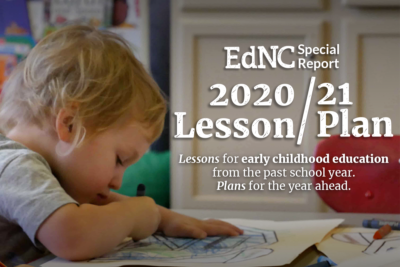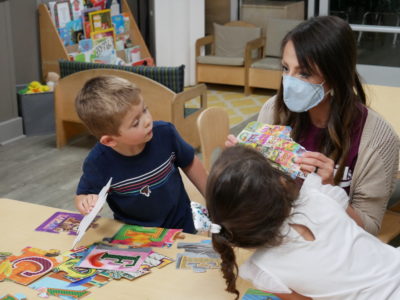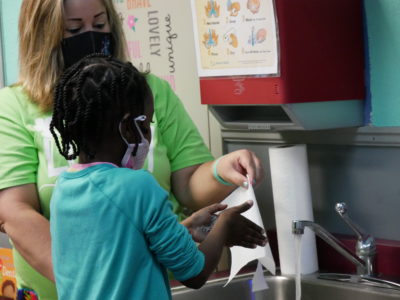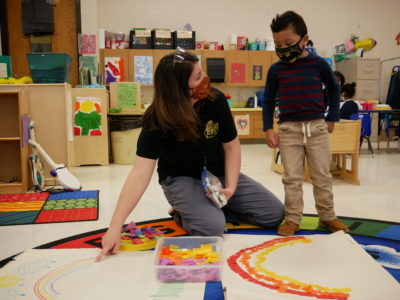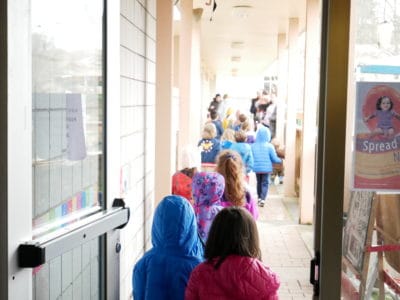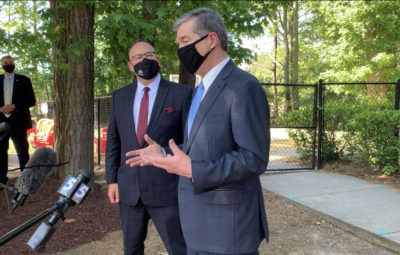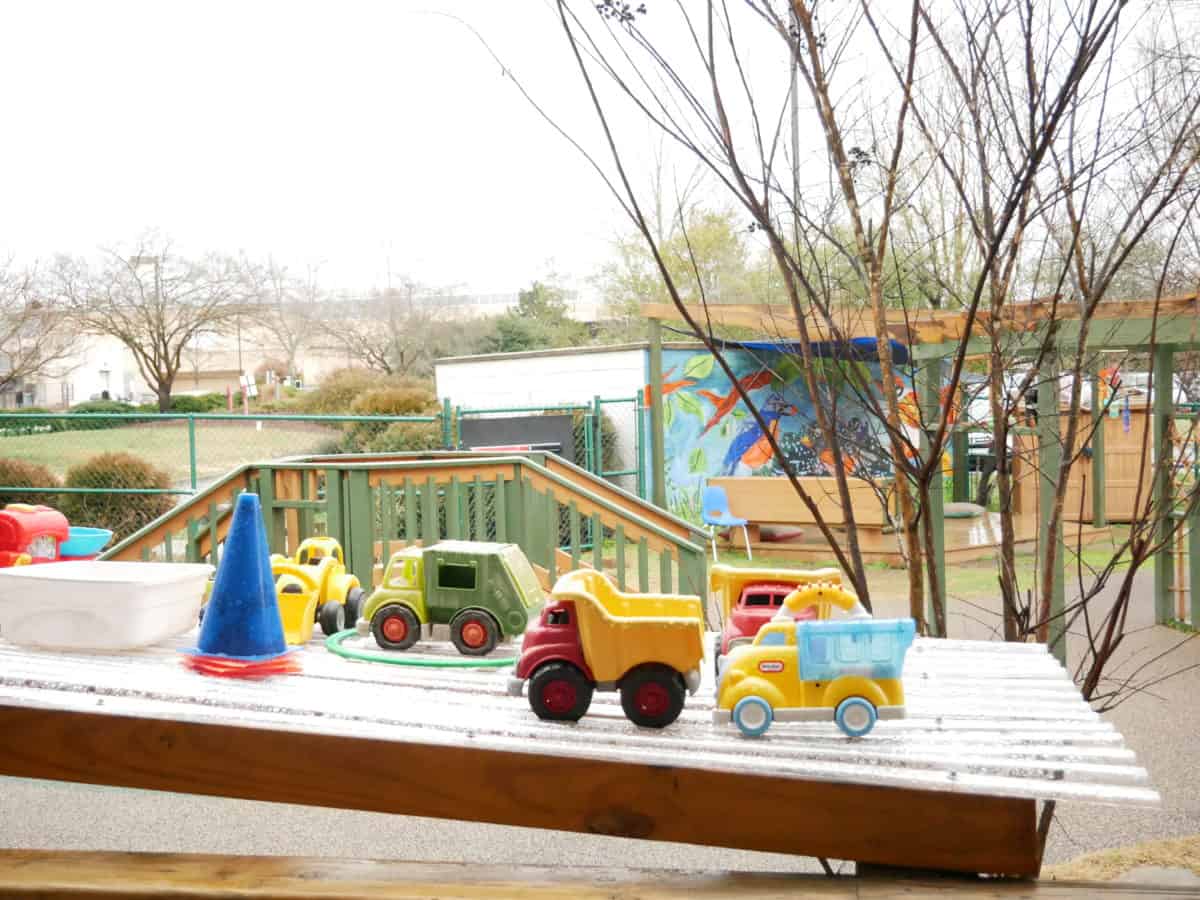
|
|
Before the pandemic, every county in North Carolina was considered a desert when it comes to child care for infants and toddlers. Even fewer families are accessing care today, said Michele Rivest, senior campaign director at the NC Early Education Coalition (NCEEC).
A new coalition, led by NCEEC and the NC Head Start Association, will study how to change that.
“We have fewer infants and toddlers in our child care programs than ever before,” Rivest said. “So where are they? We need to know these things because this is the most critical time in a child’s development.”
Zero to Three, a national advocacy organization, chose five coalitions to fund across the country through a grant from the Robert Wood Johnson Foundation. The organization gave $100,000 to the North Carolina coalition, which will include early childhood advocacy organizations, parents, child care programs, and Head Start grantees.
The group’s work will focus on expanding Early Head Start, the sister program to the federal preschool program Head Start, that serves children from infancy to three years old. The federal government awards grants to local child care sites or other agencies, which must come up with a 20% funding match. The program also has a home-based option aimed at nurturing the relationship between children and their parents. The grantees must meet the program’s standards, from teacher qualifications and compensation to curricula and wrap-around services.
Early Head Start serves 4,629 infants and toddlers in North Carolina, or 6% of eligible children, according to NCEEC. Families must live below the federal poverty line to qualify for the program. Children in foster care, children experiencing homelessness, and children receiving public assistance are also eligible.
The coalition’s work will kick off in July and run through April 2022.
Why is that number so low?
The program’s limited reach is partly due to an insufficient supply of child care overall, said Christy Jones, operations manager for the NC Head Start Association.
The state’s broader licensed child care system could serve 22% of infants and toddlers, found an August 2020 report from the Center for American Progress.
It’s more expensive to provide care for infants and toddlers than preschool-aged children, leading to high prices for parents, a shortage of slots for children, and low wages for teachers, Jones said.
“It costs so much money to start up (a program),” Jones said. Lower teacher ratios and materials make care for the very youngest children more expensive for providers and parents.
Even when it’s available, care is often unaffordable. The average cost of infant care in North Carolina is $9,480, or $790 a month, according to the Economic Policy Institute — almost 30% more than annual in-state tuition to a four-year university.
Pandemic disruptions have also increased the cost of providing child care while enrollment continues to lag behind pre-pandemic levels and many providers struggle to find teachers.
Working families need reliable child care to participate in the economy and recover from pandemic-related job losses, said Jenna Nelson, NCEEC executive director. NCEEC’s website has county-by-county data on the pre-pandemic availability of infant and toddler care. In 30 counties, there were five or fewer high-quality programs serving infants and toddlers.
“In some counties, there may be one program … that serves infants and toddlers,” Nelson said. “And so families, one, cannot access employment, because they don’t have a place for their child to go, or they’re using friends, family, or neighbor care, which could be great or could not be great. The other side of families not being able to work is employers not having access to a workforce, which is such a huge topic right now post-COVID.”
‘Time to rethink’
Marsha Basloe, president of the Child Care Services Association, is leading another project on enhancing the quality of infant and toddler care through funds from the state’s Preschool Development Grant called Babies First NC. One of the project’s long-term goals is “creating a model of quality infant and toddler care for further expansion in the state.”
The project is providing funds and technical assistance to 10 providers in high-need areas who are not currently served by Early Head Start, Basloe said.
“The next time the federal government puts out money, our programs will be better able to apply to become Early Head Start programs,” Basloe said.
Down the road, she hopes to see an infant and toddler care program similar to NC Pre-K, the state’s public preschool for at-risk four-year-olds.
“It would have to be scaled the way that we’ve done it with NC Pre-K, but we’d have to fund it appropriately,” Basloe said. “Babies don’t come cheap, and if we want our babies taken care of so that our moms and dads can go to work, we need to make sure that it’s high quality, so that we can build the next generation.”
Two parents will sit on the coalition and a separate Parent Leadership Council will also inform the group’s work, Rivest said. Asking what parents across different communities want and need will be an important aspect of the work going forward, she said. That could mean more home-based child care or services with flexible hours or home visiting.
“I think there’s a lot of room for innovation and discovery,” Rivest said. “I think it’s time to rethink how we do this, but also to do it, and to do it really well, because babies need this kind of support.”



